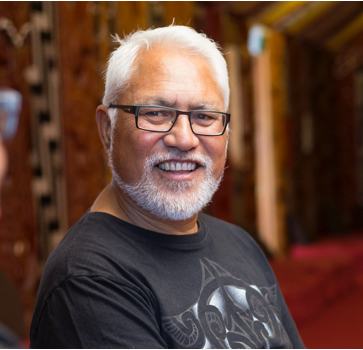The Māori Land Court
Challenging decisions of the Māori Land Court
What can I do if I’m not satisfied with a Māori Land Court decision?
The main options are:
- you can appeal the court’s decision to the Māori Appellate Court, or
- you can apply to have the original case heard again (a “rehearing”), or
- you can apply for the Chief Judge of the Māori Land Court to exercise some special powers.
Appeals
You can appeal to the Māori Appellate Court/Te Kōti Pīra Māori if you think the Māori Land Court made a mistake about the law that applies to your case – for example, a mistake about how to interpret certain words in Te Ture Whenua Māori Act.
Unless the Appellate Court agrees, you can’t bring any new evidence that wasn’t presented at the original hearing.
How much time do I have to apply for an appeal?
You can appeal to the Māori Appellate Court against a final order of the Māori Land Court within two months after the order is finalised, or longer, if the Māori Appellate Court allows.
What can the Māori Appellate Court do?
Te Ture Whenua Māori Act 1993, ss 56, 58A, 58B
The Appellate Court can either:
- reject your appeal, or
- confirm, cancel or change the original decision or order, or
- instruct the Māori Land Court to make other orders or to hold a rehearing.
You can appeal to the Court of Appeal about all or part of any decisions the Māori Appellate Court makes.
Rehearings
Applying for a rehearing
Te Ture Whenua Māori Act 1993, s 43
Anyone who has an interest in an issue that the Māori Land Court has made a decision about can apply for the court to hold a rehearing.
You must apply within 20 working days after the order was made. A late application can be accepted if the judge is satisfied you couldn’t have applied earlier.
Note: A decision of the Māori Appellate Court can’t be reheard.
In what situations will the court agree to hold a rehearing?
A rehearing will be granted if:
- new evidence has been discovered that could have affected the outcome, or
- someone affected wasn’t given enough notice of the original hearing, or
- there’s been a relevant change of circumstances, or
- the original decision has had an unintended or unfortunate result.
The court may also grant a rehearing if it thinks the original decision was unreasonable in the circumstances.
How does a rehearing work?
With a rehearing, the same court reconsiders the same case. It can be conducted by the same judge or a different one.
Although the evidence from the original hearing is available to the judge, the case is heard from the beginning as if the first hearing had never been held.
The court can confirm, change or cancel any previous decision, and in general can do anything that could have been done at the original hearing.
Chief Judge’s special powers
Chief Judge’s powers to remedy a mistake or omission
Te Ture Whenua Māori Act 1993, ss 44, 45, 773
The Chief Judge of the Māori Land Court has special powers to change an order of the court if it was wrong, whether factually or legally, as a result of a mistake or omission by the court or the registrar or a mistake or omission in the presentation of the facts to the court or the registrar.
An example of a decision that’s factually wrong might be that a legally entitled child of a deceased person was deliberately left out on succession. An example of a decision that’s legally wrong might be one that was made under the previous law (the Māori Affairs Act 1953) rather than the current Act.
The Chief Judge can cancel, confirm or amend the original order or make new orders to put right any mistake or omission.
The Chief Judge can exercise these powers in relation to any Māori Land Court Order, even those that are more than 10 years old and that therefore can’t otherwise be challenged as invalid.
Applying to the Chief Judge
Te Ture Whenua Māori Act 1993, s 45
Any person who claims that they’ve been negatively affected by the order in question can apply for the exercise of the Chief Judge’s special powers. The application must be in writing. When you apply, you can be required to pay a deposit to the court as security for costs.
Note: Any order the Chief Judge makes cancelling or amending a previous order of the court can be appealed to the Māori Appellate Court. However, if the Chief Judge decides not to exercise these powers in response to your application, you can’t appeal that decision.
Mistakes in the court record
What can I do if I find a mistake in the court record?
Te Ture Whenua Māori Act 1993, ss 86, 87
The Māori Land Court has the power to amend any order, warrant, record or other document issued by the court so as to give effect to the true intention of the court decision.
An owner of Māori freehold land or the court registrar can apply to amend any entry in the court records where this is necessary to show the applicant’s correct name or the name he or she wants to be commonly known by – for example, to show an applicant’s married name, or to distinguish between people who have the same or similar names.

